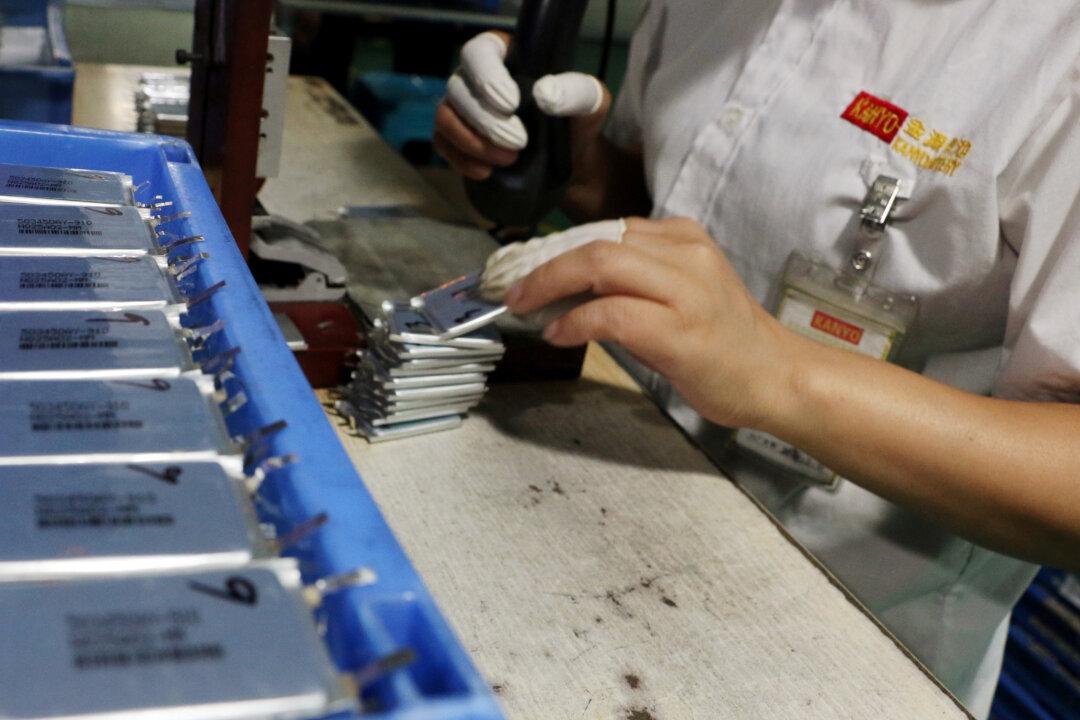A trio of House Republicans is challenging five top Biden administration Cabinet secretaries to explain why a company controlled by the Chinese Communist Party (CCP) was able to buy Canada’s Neo Lithium Corp. with no review by Prime Minister Justin Trudeau’s government.
The letter, authored by Reps. Michael Waltz (R-Fla.), Elise Stefanik (R-N.Y.), and Lance Gooden (R-Texas), was addressed to Secretary of State Antony Blinken, Defense Secretary Lloyd Austin, Energy Secretary Jennifer Granholm, Commerce Secretary Gina Raimondo, and Interior Secretary Deb Haaland.
“The acquisition by the [CCP] of a Canadian critical mineral mining company with an existing lithium project in South America is highly concerning and raises a litany of questions regarding [U.S.] and Canadian understanding of the threat imposed by the Chinese Communist Party,” the letter reads. “The Canadian government’s complicit approval also raises questions regarding the extent of cooperation with the United States in accordance with the Action Plan, including whether the United States government was aware or notified of the pending transaction.”
The agreement was intended to ensure communication and cooperation between the two countries regarding expanded “Critical Minerals” mining, operations, and ownership.
Critical Minerals are extremely scarce mineral resources such as lithium, platinum, and tellurium that are essential for high-technology products such as wind turbines, batteries for electric vehicles (EV), solar panels, computer displays, and cellphones, as well as in military applications.
All five Cabinet secretaries addressed in the letter from the House trio have duties under the Action Plan. The secretaries are all appointees of President Joe Biden.
The GOP lawmakers said in their letter that “at a minimum, the Action Plan is intended to spark collaboration for sharing information and analysis, and to promote overall coordination in the interest of securing the U.S.–Canada supply chain for critical minerals.”
The lawmakers requested the Cabinet secretaries provide comprehensive briefings and materials on all Action Plan “engagements, initiatives, dialogues, recommendations, and information” generated by the U.S. government. Under the Action Plan, such documents aren’t considered public. The documents are supposed to be available to Congress, however, but haven’t been provided by the Biden administration.
They also asked for copies of “any notification or communication between the Canadian government and United States agencies regarding the Neo Lithium acquisition” and sought “a legal justification for the United States not conducting a formal review of the transaction and transcripts from Secretary Raimondo’s November meetings with Industry Minister François-Philippe Champagne.”
Champagne didn’t address the related issue of China’s use of slave labor in its acquisition of critical minerals, especially in the production of lithium batteries required for EVs.
Also frequently mentioned was the Democratic Republic of Congo, which has most of the world’s cobalt, which is also required for EV batteries. China controls most of the cobalt mining in the Congo, as well as that of lithium.
The Biden administration wants the United States to convert its public and private transportation systems from dependence on internal combustion power to electric power. Approval of the Republican proposal by the committee would have erected a major obstacle to achieving Biden’s goal of half of all U.S. new vehicle purchases to be of EVs by 2030.





